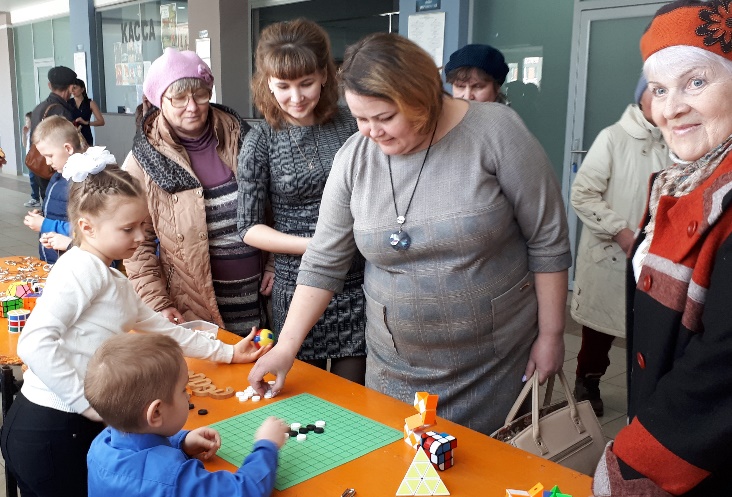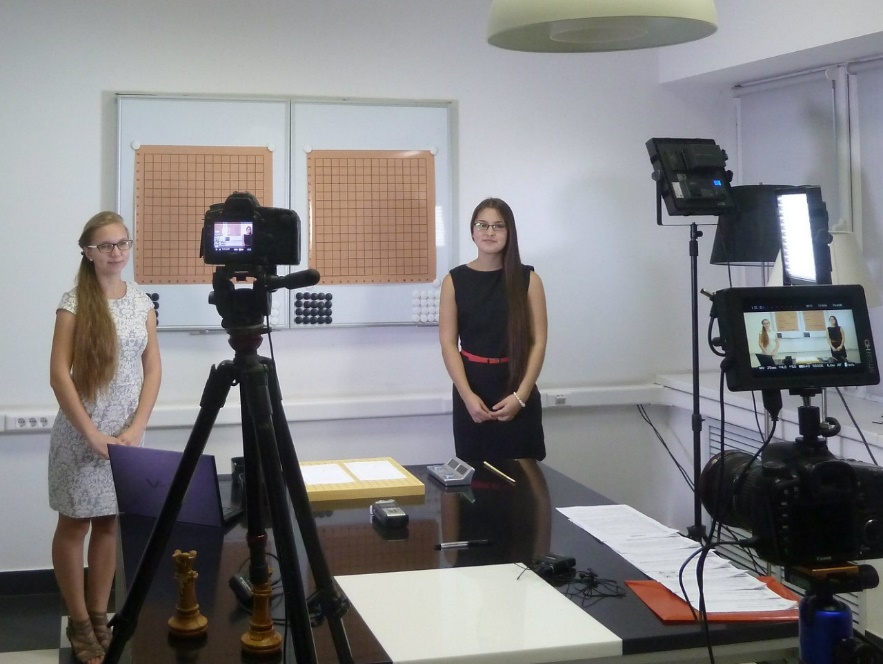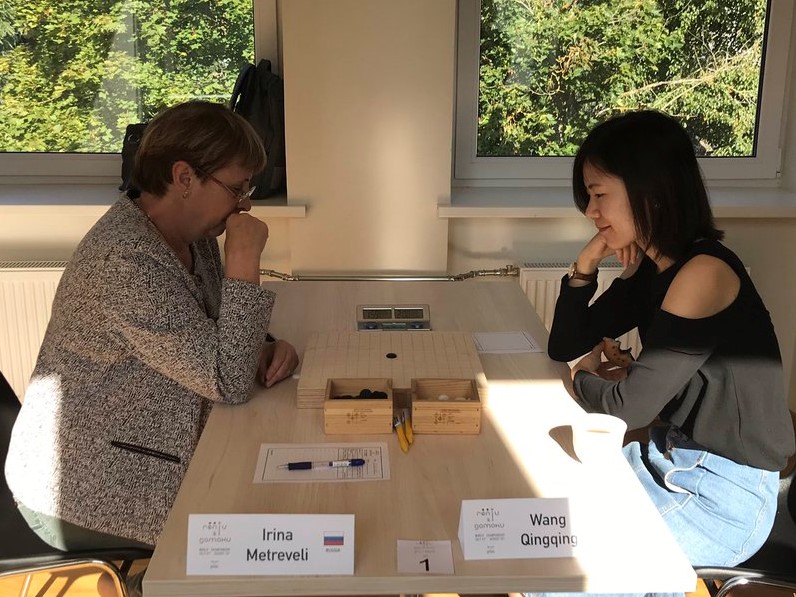My congratulations for bronze medal and upstanding perfomance in strong competition! Without doupt, all renju world was following your success. How satisfied are you yourself?
Thank you very much! It is my 10th medal at the World Championships and of course, I’m very glad. In 2017 in Taipei the girls from Podjuga were left without medals at the World Championship for the first time, so I think the 3rd place at this one is a good result.
How do you compare this championship with previous ones – 2017, 2015 and so on, talking about playing level? Where was strongest competition? What is needful to do, to get strongest female players to WT?
Each championship was difficult and interesting. The competition for the 1st place was very hard at all World Championships.The difference between the 1st and 2ndplaces was often 0,5 points. The level of players in theWomen’s World Championship has increased in the last years due to players from China, Taiwan and Japan, andit is very good because it leads to interesting games and the growth of participants. I think the first World Championship was the most difficult and interesting for me. It was the only championship where I had to play anadditional game to become a champion. Itwasthe difficult and interesting game with Natalia Vasilyeva.
On the second question, I can say only about the participants from my school. Most of my players are students and the main problems for them are time and money. For this reason, this year such strong players like Kira Lashko, Olga Kurdina, Alexandra Sumarokova could not participate in the selection tournament for the World Championship in Russia.
There is an idea to improve the points system in Russia, so that more players could participate in international competitions for women. The five seats from Russia can be distributed as follows. The first two places are the Champion of Russia among women from the last year and the champion with the highest number of points in the last two years. The selection of the rest is as follows. To compete for a place, you need to score the minimum number of points to enter the selection by rating. Further fate is determined by the greatest rating. Thus, the strongest and most worthy players will play at international tournaments.
What chances did you see for 1-st place before championship? What chances for medal? What did lack to get 1-st place?
When I Looked at the list of the participants, I thoughtit would be hard to compete for the 1st place, but I believed that I or Nastya Oborina could compete at least for the 3rd place. I think the start of the tournament was good: the point in the game with Wang Qingqing and the draw with Wu Zhiqin. I had 3,5 points out of 4 after 2 days of the tournament. At that time, I realized that I had the opportunity to compete for the 1st place. Unfortunately, I couldn’t handle the stress on the third day and lost both games. With Li Xiaoqing, I made a mistake on the 26th move. In the game with Fujita Miko, she made the wrong15 stone. I waste a lot of time to find an opportunity to win and I didn’t find it. Eventually, I went the wrong way. After that day I could compete only for the 3th place.
I cannot highlight only one game. I played each game at full strength, but two games were the most emotional and difficult for me. The first one was the 7th round with Sofia Tolstoguzova. It was a difficult game for me because I lost several rounds before, and I needed to win it to keep competing for the 3rd place. The second one was the last round of the tournament with MariKolk for the 3rd place. The game was very stressful. Mary defended very well and keep a draw, but I needed to win. We were the last in the hall that led to the extra stress. Eventually, I could find a long and difficult victory and took the 3rd place.
How satisfied are you with perfomance of your student Fedotov?
Denis Fedotov played well in QT and became my second student, who played in the final of the World Championship. The last 2 years our goal with Denis was to get to the World Championship final, and we achieved it.
Nastya Oborina showed a good play but the loss in 10I with Yu Yajun and a mistake with the 125th move in the game with Wu Zhiqin left her with no chance to compete for a medal.
Dasha Iusupmurzina is only 13 years old, but she already participated in such a serious tournament the second time. The previous competition she was the 10th, and now she is the 8th. I believe that Daria has a talent to be a good Renju player in the future.
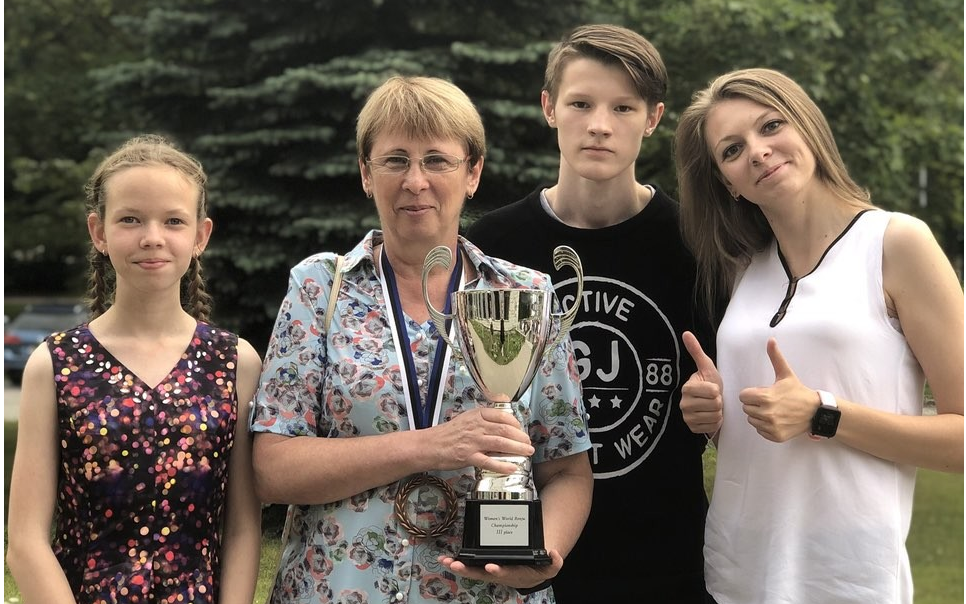
Which new students do you have, whom renju world will soon get to know?
Yes, I have many new students. One of the vivid students is Dima Agarkov (9 years old), he is a winner of the Russian Championship 2019 in his group. Next, Nastya Buslakova and Nastya Simanovsky who are both 8 years old, and they are already winners of the European Championship in Gomoku 2019. Also, Sergei Mikriukov is a new hope of Podjuga Renju School. He is 5 years old now. I think we will hear about him at international tournaments of Renju soon. Moreover, these students help me in conducting master-classes of Renju for other players.
What plans do you have for future, will you continue to play yourself?
I want to believe that Denis Fedotov will get to the opportunity to play in the final of the next World Championship, but for now, we will prepare for the European Championship and the Youth World Championship in 2020. About myself, I can say that I will continue to play. I am going to participate in selection for the World Championship. I hope I will play successfully, and I will be selected, but if not, I will come as a coach of my girls.
How do see yourself during all years you have trained children? How much have you changed during these years yourself? Is there something you do completely differentially comparing with time you started (both in renju and also about life)?
10 years ago, beginners could see the Champions and even play with them every training. Now it is almost impossible. They don’t meet each other because of the different time schedule at school. So, when younger finish the training older students just come to train. Therefore, the older players analyze the games at the tournaments with the younger players, as before – this is our tradition.
The first years, only the strongest players went to international tournaments and they always worked hard to win. Now more children go to the tournaments and more often go abroad. But there is a big difference. Since there is not enough sponsorship, only students whose parents can pay go to the competition. But not all the strongest students can afford such trips. For example, this year 4 of my students, who became Youth Champions of Russia in their groups, could not go to the Youth European Championship.
The approach of studying openings has changed. Previously, all students learned a common base of openings, and then everyone chose their favorite. Now the approach is more individual. That is, depending on the play styleof each student openingis selected. This approach is simpler, so even young students know a lot of diagrams.
Almost nothing has changed in the organization of trips. Each younger has a responsible older who helps and supports in everything. Older students help me in everything as well. It has become such a big tradition that, for example, the older students still help to cook at tournaments. We also show new year performance every time for many years.
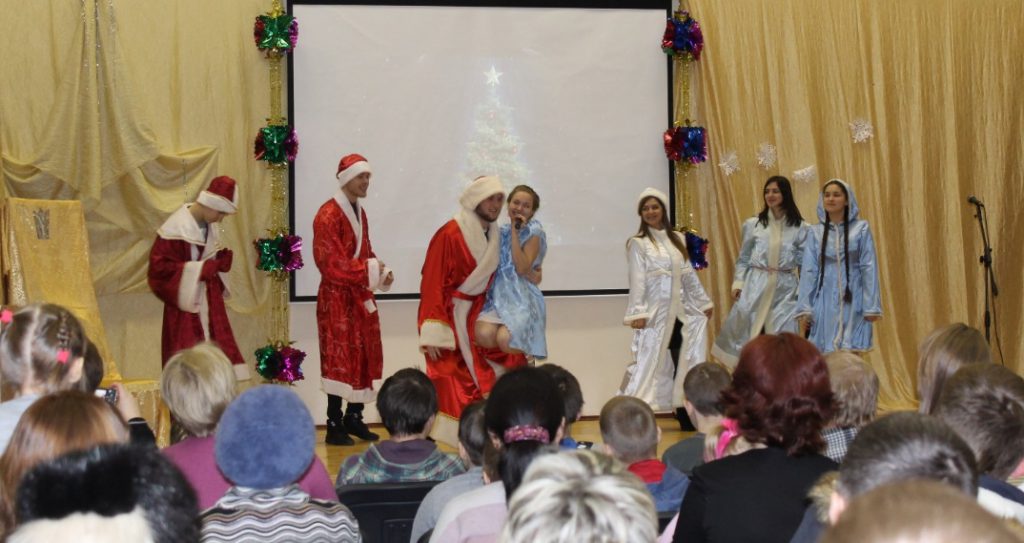
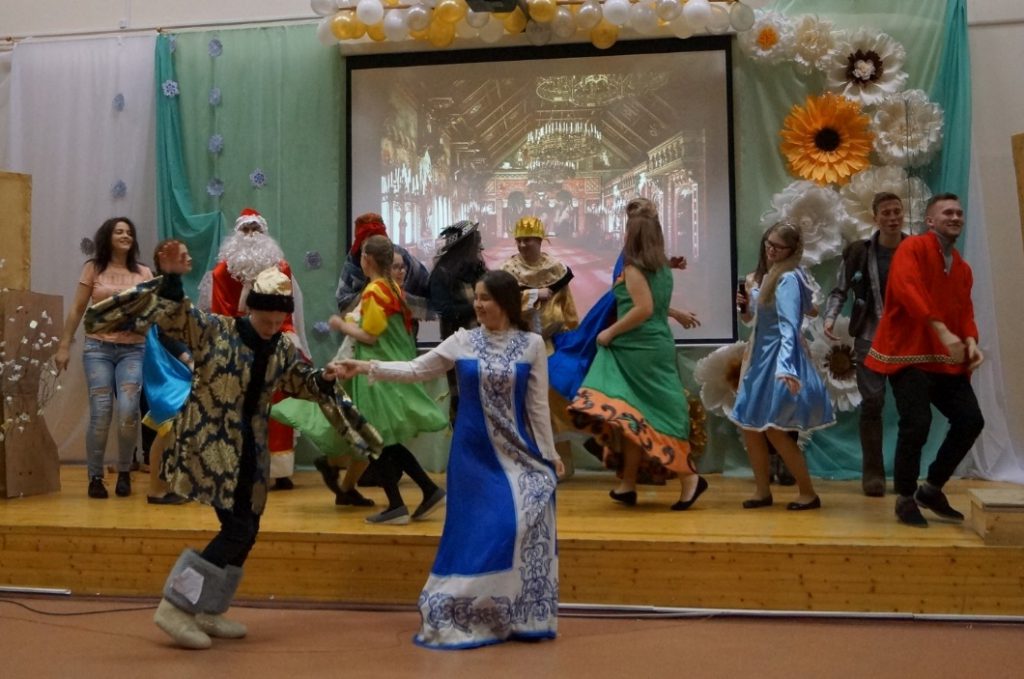
Can you tell us a bit about life of your most famous previous students – Lebedeva, Savrasova, Kraeva, Lashko, Vostriakov, Nekrasov, Vershinin, Kadulin, Lysakov, Serdiukov and others?
Podyuga is a village, so my students leave and settle in other cities.
Naryan-Mar. Elena Lebedeva left Podjuga to study in Arkhangelsk Technical University. After graduation, Elena moved to Naryan-Mar where she lives and works now.


Konosha – Oksana Sorokina works as a Renju coach at Konosha sports school. She already has students, such as Mikhail Sidorov, Maksim Startsev, and Pavel Noskov who showed good results at the Youth Championship of Europe 2019 and won medals.
Arkhangelsk – Sergei Vostriakov and Julia Savrasova graduated from Arkhangelsk technical University. Julia works at the university, at the Department of Chemistry and Chemical Technologies. She is married and raising a son. Julia is thinking to start playing Renju in the future again. Sergei is a Technical Director at the company for the production of construction and installation works related to engineering communications. He is married and raising a son.
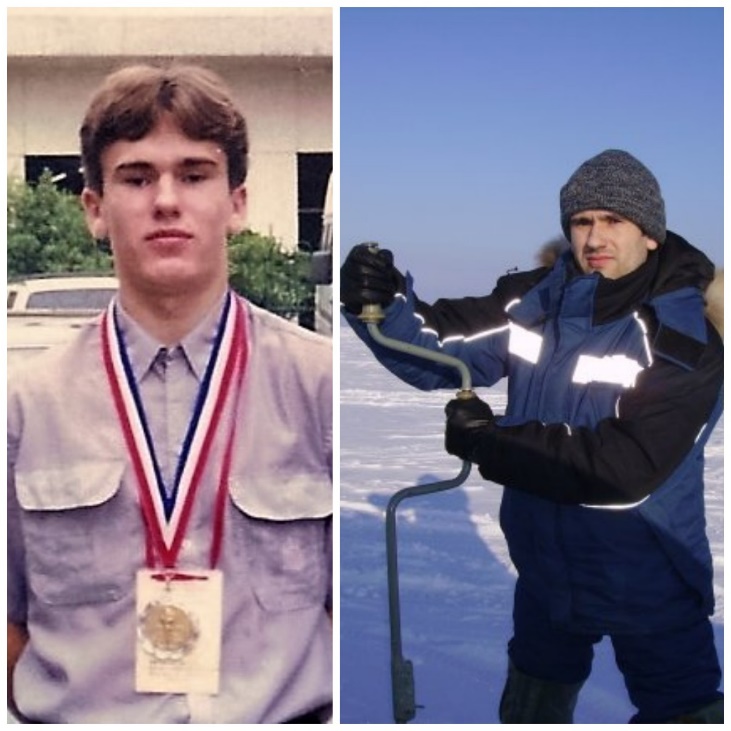
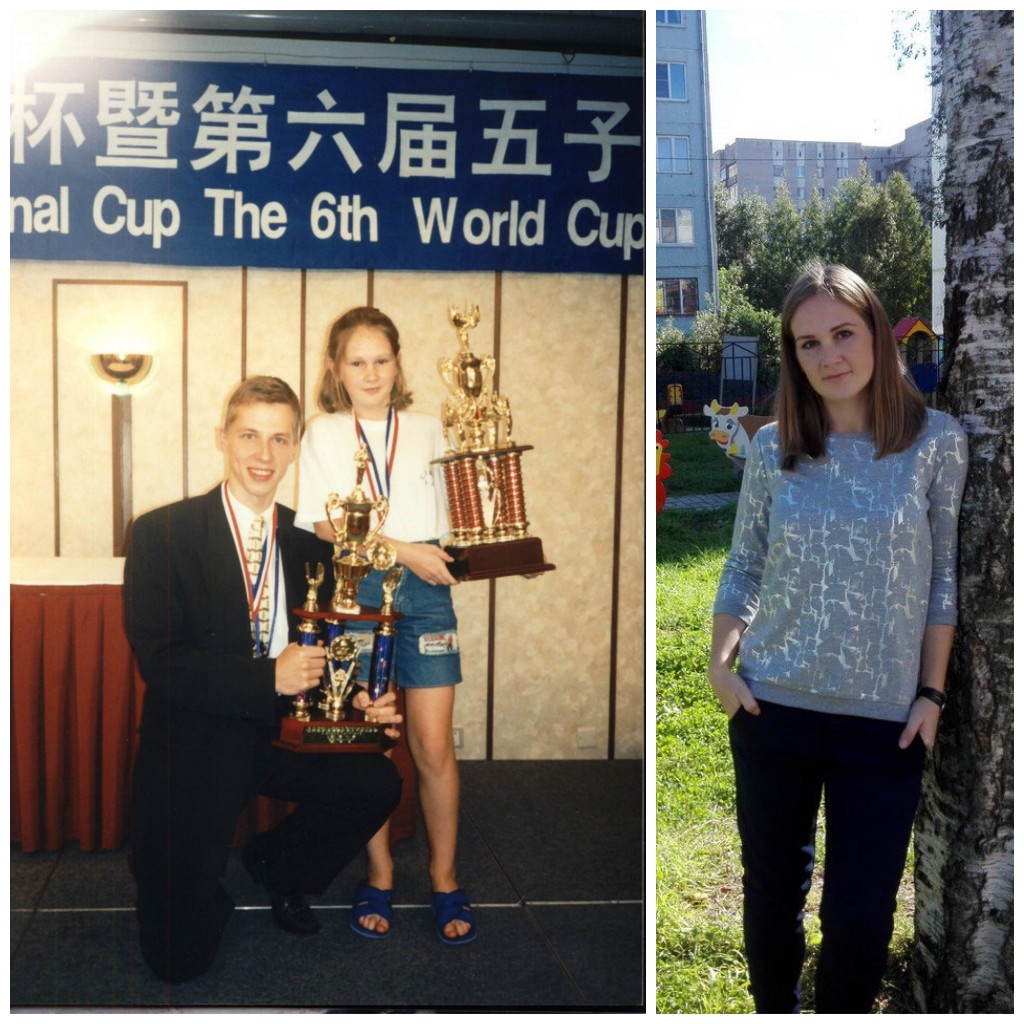
Seattle, the USA Egor Serdiukov graduated from the Moscow Aviation University. He works as a Manufacturing Engineer at the Boeing Company.
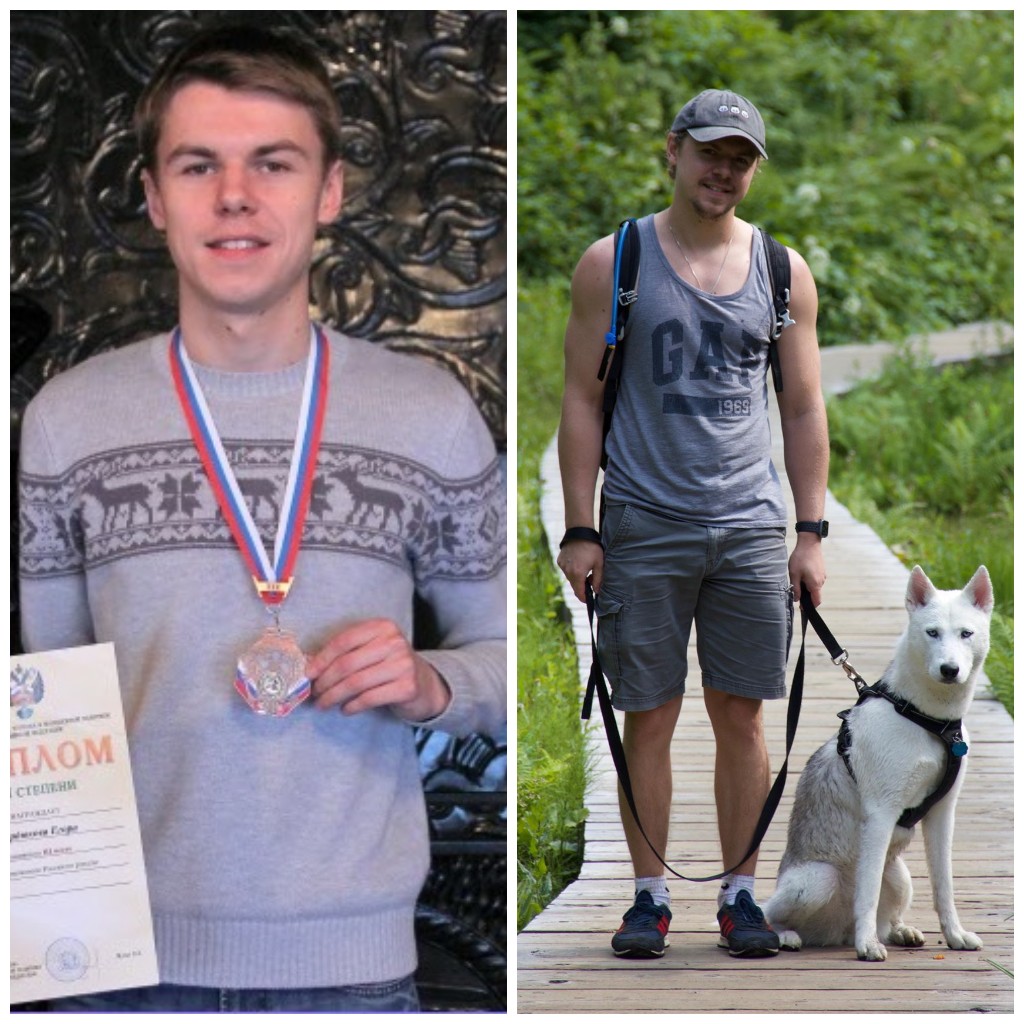
Vologda – Pavel Vershinin graduated from Vologda Technical University. He has opened a Renju Club this year in Vologda. I hope that soon we will see his sons and students at competitions in the future. Denis Nekrasov graduated from Moscow University STANKIN. Then he moved to Vologda with his wife and son. Now he works as a System Administrator at the institution of fire protection. Every year Denis plays in our new year tournaments and wins medals.
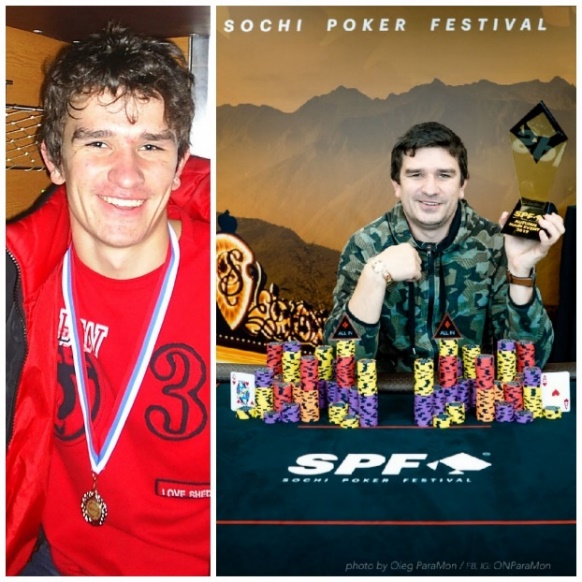
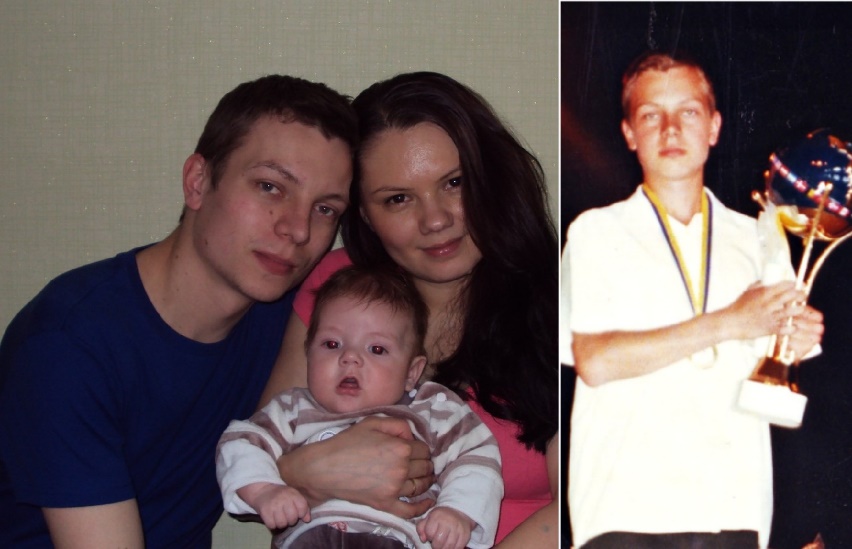
St. Petersburg – Tatiana Kraeva graduated from Tyumen Oil and Gas University with a gold medal with a major in Advertising and PR. Right after graduation, she moved to St. Petersburg. She worked as a Public Relations Specialist at Contract Electronics. Also, she got the second education in Jurisprudence in SPB. In free time, Tatiana enjoys photography, interior design, and making desserts. She is married and raising her daughter Sofia. Victoria Rachitskaya graduated from the Financial University (FA) under the government of the Russian Federation. Now she is a Financier at the management company TKB “investment partners”. Artem Merkulov graduated from the Mining University in St. Petersburg in 2016, the Department of Information Systems and Computer Engineering.


Tyumen – Maria Pestereva graduated from the Tyumen Humanitarian Institute, with a major in Advertising and PR. She has been working in the Advertising and Production Company for 6 years. Now Maria is thinking about to relocate from Tumen to Yaroslavl or St. Petersburg.

Moscow – Mikhail Kazarin graduated from Moscow Pedagogical University. He works at the International Training Center as an Organizer of different pieces of training and seminars. Alexander Kadulin graduated from Rybinsk Aviation University and moved to workin Moscow. Evgeny Sumarokov is a BI manager at the Metropolis project company, which took part in the reconstruction of the LUZHNIKI stadium for the 2018 World Cup and the design of the stadium in Krasnodar, etc. He is engaged in the development of new technologies in construction. He continues to study at the magistracy of Moscow Aviation University. Olga Kurdina works as a Specialist at “Red Media” – one of the largest Russian company for the production and distribution of thematic channels of cable and satellite broadcasting. Also, Aleksandra Sumarokov, Kira Lashko, Alexey Vostryakov, Tatyana Prokopets, Daria Stulova continue their studies in various universities in Moscow.






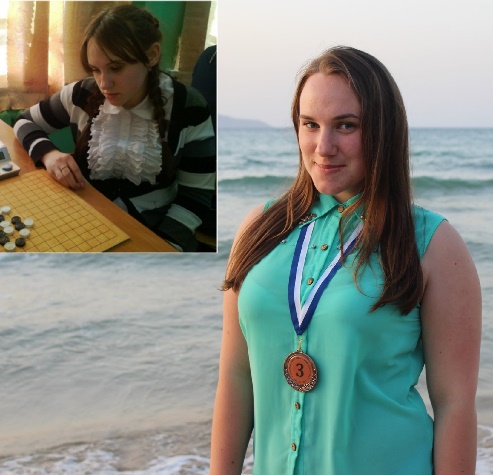
Yaroslavl – Roman Kryuchok has returned from the army this summer. Now, he is back to Yaroslavl Technical University to continue his education.

Rybinsk – Many of Renju players from Podjuga have graduated Rybinsk Aviation University. Only Mikhail Lysakov decided to stay there. He has a family. He is a Programmer. Now Anastasia Oborina, Oleg Semenov, Denis Fedotov are also studying at this university at different courses.

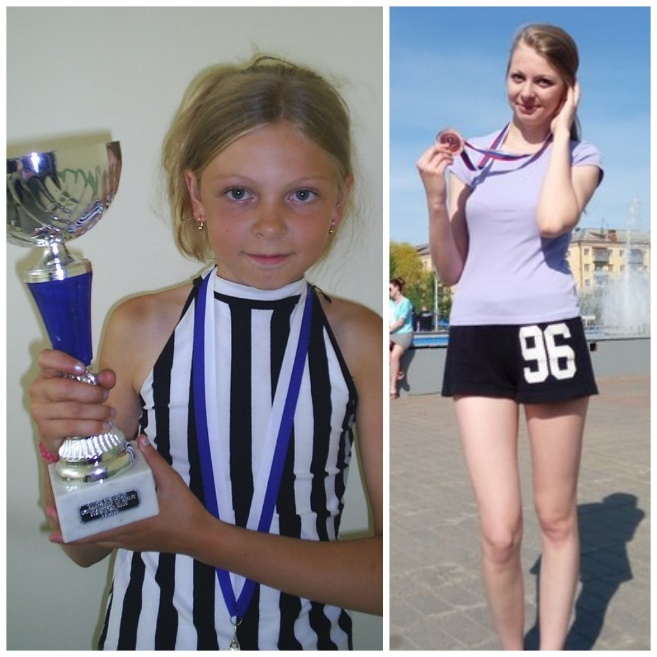
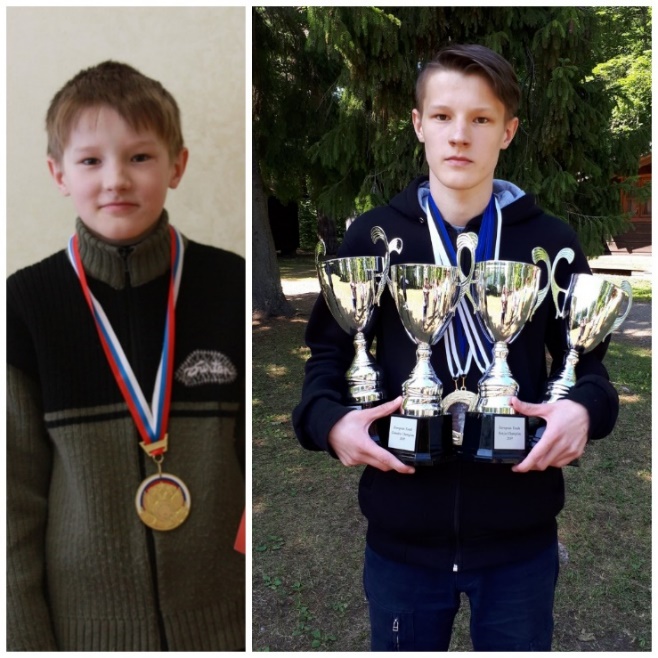
Is there something else you want to say to readers?
Since childhood, we have involved in attracting children to the popularization of renju. We conduct various master classes within the Arkhangelsk region, as well as beyond. There is also the online Renju course that was taught by Kira Lashko and Alexandra Sumarokova.
Many of my students, even after they stop playing, continue the tradition of developing Renju and outside the Poduga.
